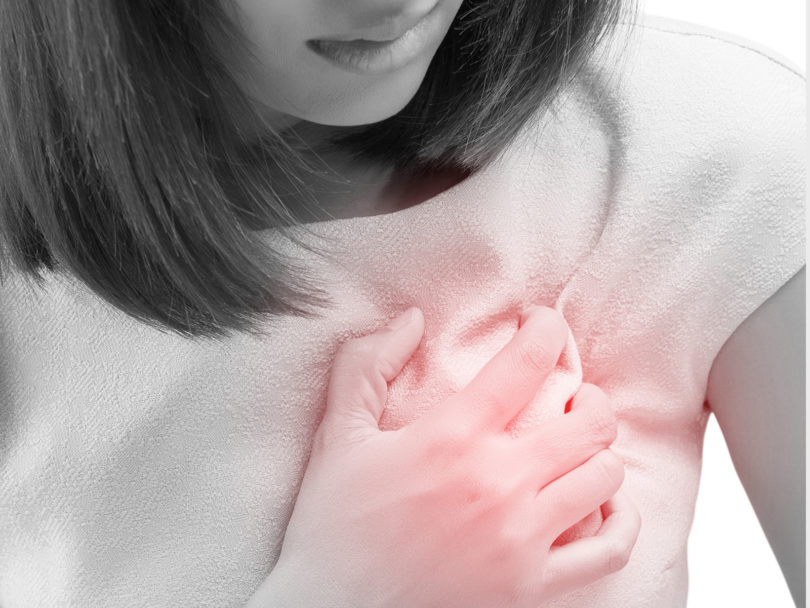You’re lying in bed when you’re suddenly overcome with chest pain. Is it because of that Mexican dinner you enjoyed a few hours prior, or could it be something more serious? When it comes to chest pain, how do you know if it is simply a case of heartburn or if it could be the symptom of a heart attack?
Typical symptoms of acid reflux, which usually appear after a heavy meal, are burning in the chest, nausea and perhaps a sour taste in the mouth as stomach contents creep back up into the esophagus. These symptoms often subside after taking antacids.
Suffering from acid reflux “tends to be more common at night and more common when you lie down, since you have gravity working against you,” says Dr. Kerry Prewitt, a cardiologist with Sentara Cardiology Specialists in Williamsburg, Va. Prewitt has seen patients who think they are experiencing reflux when in actuality they are having chest discomfort or a heart attack.
Stress or anxiety usually brings on symptoms of chest discomfort: a feeling of tightness; or pressure or heaviness in the chest area, often after heavy exertion from running, exercising or climbing stairs. Patients may feel short of breath with chest discomfort, which is not a typical sign associated with acid reflux.
A heart attack, meanwhile, usually comes on suddenly and while someone is idle. Indicators include pain in the center or left side of the chest, down the left arm or sometimes in the back. Nausea and sweating may also be experienced during a heart attack.
It can be challenging to know what may be happening for a patient who has both heart disease and often experiences acid reflux, since the heart lies next to the esophagus. Dr. Joseph Adinaro, a cardiologist with Riverside Cardiology Specialists, recommends looking for patterns and thinking about your risk factors, such as your family’s medical history, to help distinguish between the two.
When it comes to chest discomfort, patients sometimes downplay their pain because they are in denial or fear having to go to the hospital, but that isn’t wise.
“People don’t want to believe that it is the heart,” says Adinaro. “If you ever think it is your heart, then definitely go have it checked out.”
Prewitt agrees. If you are experiencing chest discomfort for more than 20 minutes, take an aspirin and call 911.
“If you are uncertain, just call an ambulance or go to the nearest emergency room,” Prewitt says. “Don’t wait until the next day. I’d rather you be safe than sorry.”



